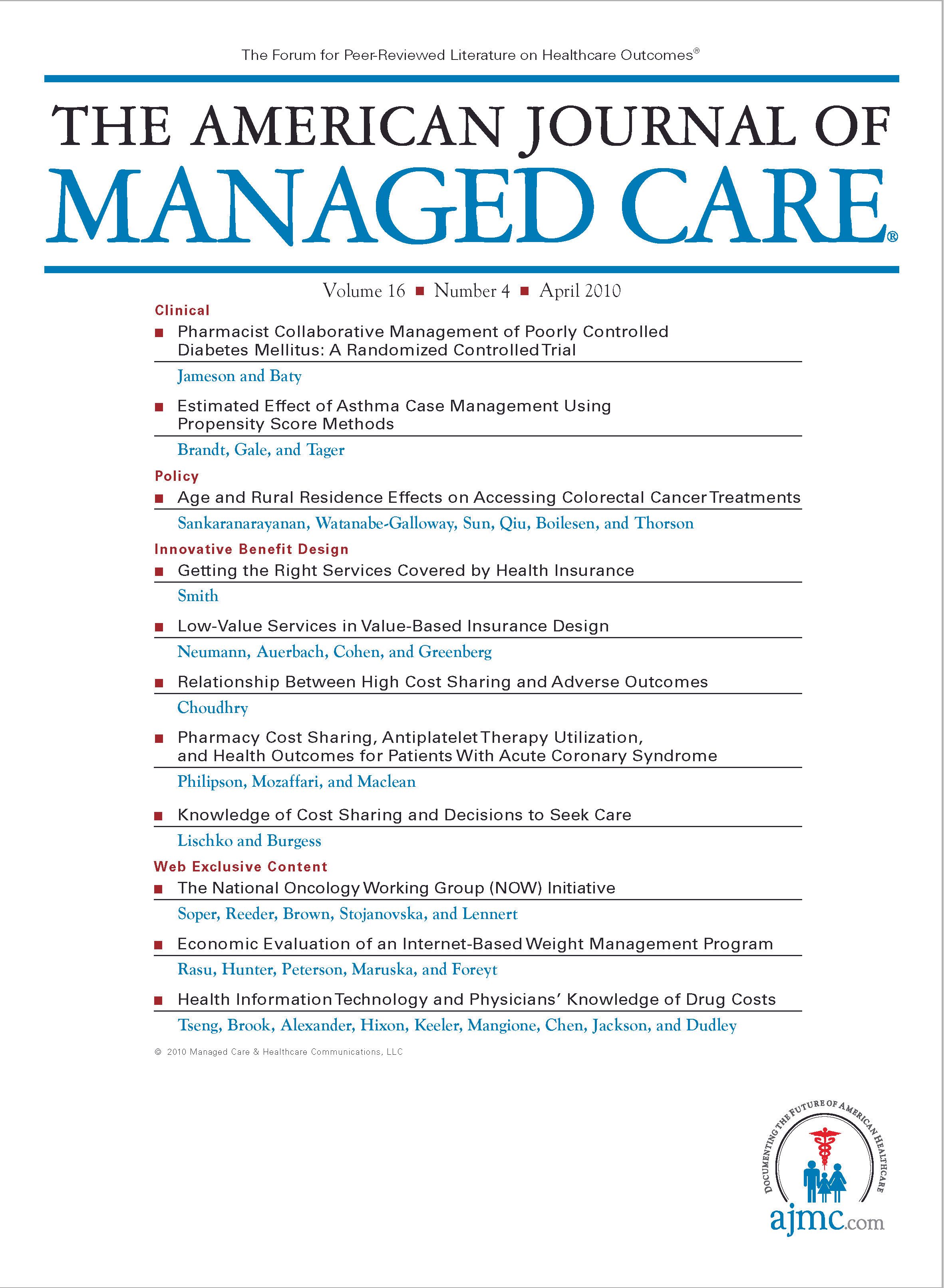- Center on Health Equity & Access
- Clinical
- Health Care Cost
- Health Care Delivery
- Insurance
- Policy
- Technology
- Value-Based Care
Estimated Effect of Asthma Case Management Using Propensity Score Methods
An asthma case management program increased preventive care but did not significantly decrease markers of exacerbations.
Objective: To estimate the treatment effect of participation in an asthma intervention that was part of the National Asthma Control Program.
Study Design: Cross-sectional; difference in outcomes between participants and comparable nonparticipants matched by using propensity scores.
Methods: Data on children who participated in asthma case management (n = 270) and eligible children who did not participate in case management (n = 2742) were extracted from a Medicaid claims database. We constructed measures of healthcare utilization, sociodemographics, and neighborhood characteristics. After creating a comparison group similar to the participants in terms of all characteristics before participation, we estimated the effect of the program on asthma outcomes.
Results: Participants were more likely to have vaccinations for pulmonary illness (95% confidence interval [CI] = 1.82, 4.81), to fill a prescription for controller medications (95% CI = 1.07, 2.19), and to have a refill for rescue medication (95% CI = 1.07, 2.07) after the program than comparable nonparticipants. There was no statistically significant difference in the number of nebulizer treatments or emergency department visits between the 2 groups.
Conclusions: The program did increase the use of preventive healthcare by participants. Over the time period we studied, these behaviors did not decrease healthcare utilization for asthma exacerbations. We were unable to discern whether the lack of effect was because of the nature of the program, heterogeneity of the effects, or barriers outside the program’s control.
(Am J Manag Care. 2010;16(4):257-264)

Quality of Life: The Pending Outcome in Idiopathic Pulmonary Fibrosis
February 6th 2026Because evidence gaps in idiopathic pulmonary fibrosis research hinder demonstration of antifibrotic therapies’ impact on patient quality of life (QOL), integrating validated health-related QOL measures into trials is urgently needed.
Read More
Building Trust: Public Priorities for Health Care AI Labeling
January 27th 2026A Michigan-based deliberative study found strong public support for patient-informed artificial intelligence (AI) labeling in health care, emphasizing transparency, privacy, equity, and safety to build trust.
Read More
Ambient AI Tool Adoption in US Hospitals and Associated Factors
January 27th 2026Nearly two-thirds of hospitals using Epic have adopted ambient artificial intelligence (AI), with higher uptake among larger, not-for-profit hospitals and those with higher workload and stronger financial performance.
Read More
Motivating and Enabling Factors Supporting Targeted Improvements to Hospital-SNF Transitions
January 26th 2026Skilled nursing facilities (SNFs) with a high volume of referred patients with Alzheimer disease and related dementias may work harder to manage care transitions with less availability of resources that enable high-quality handoffs.
Read More

